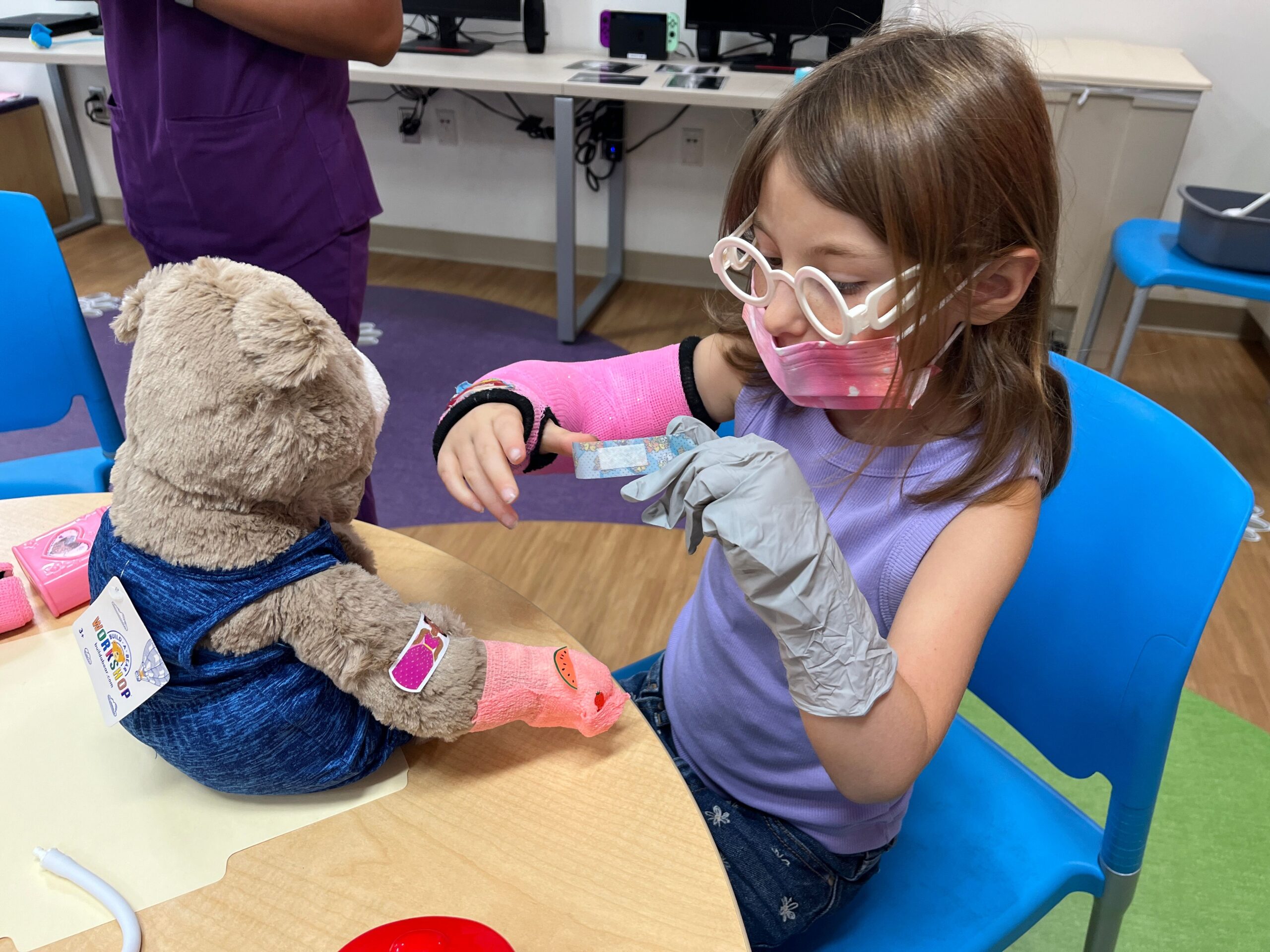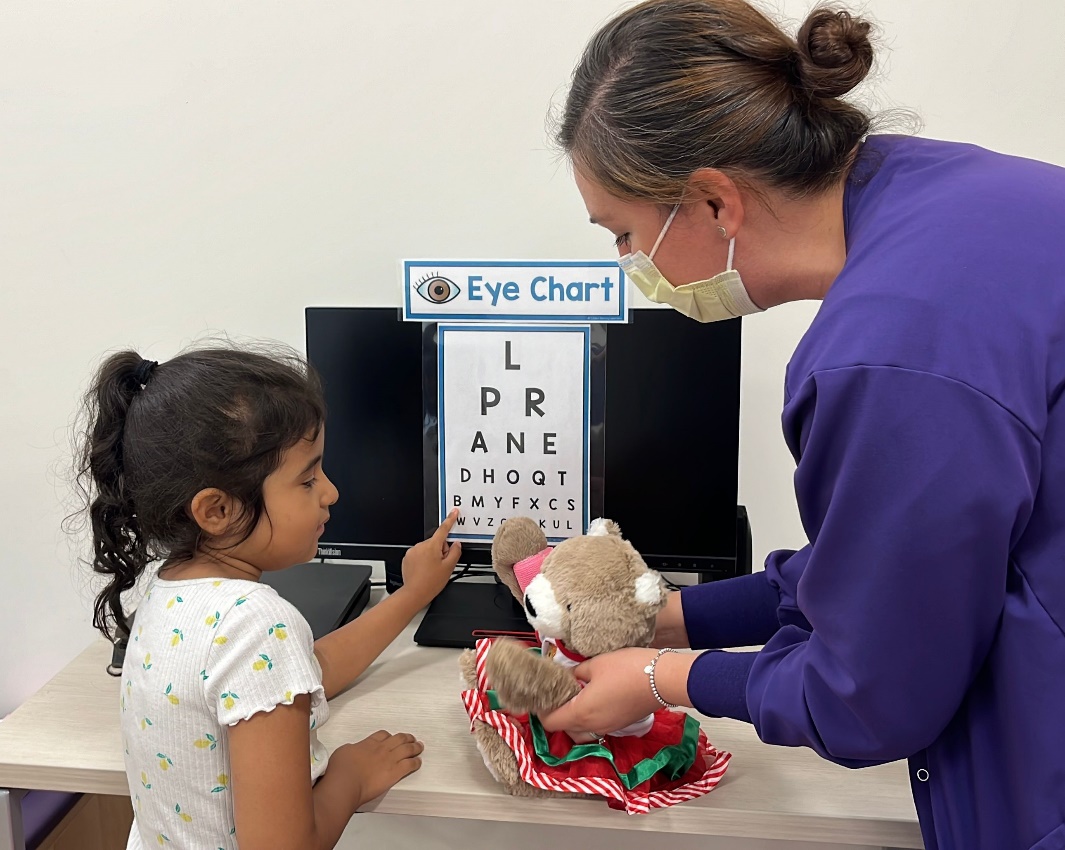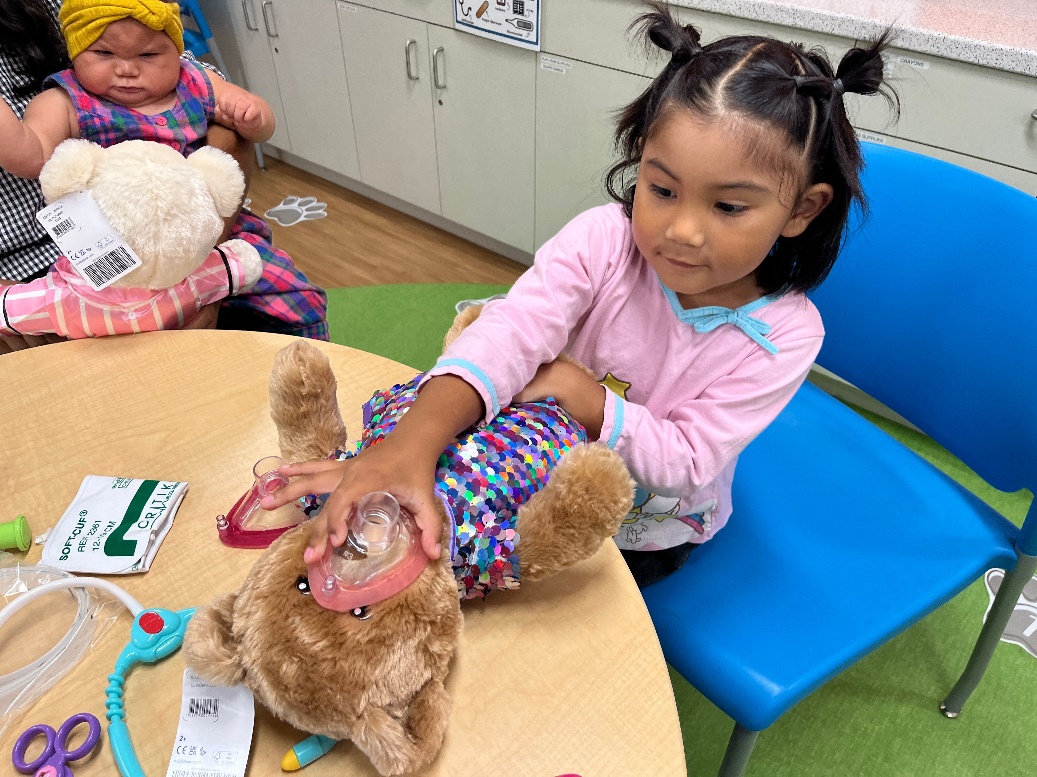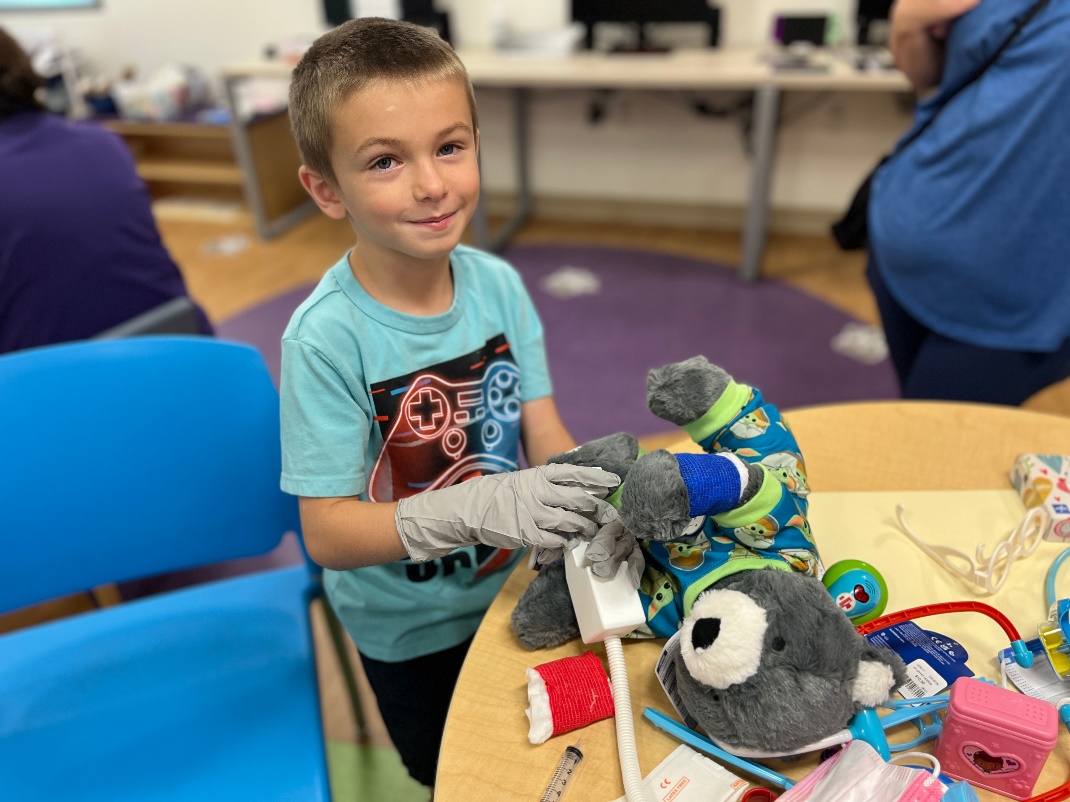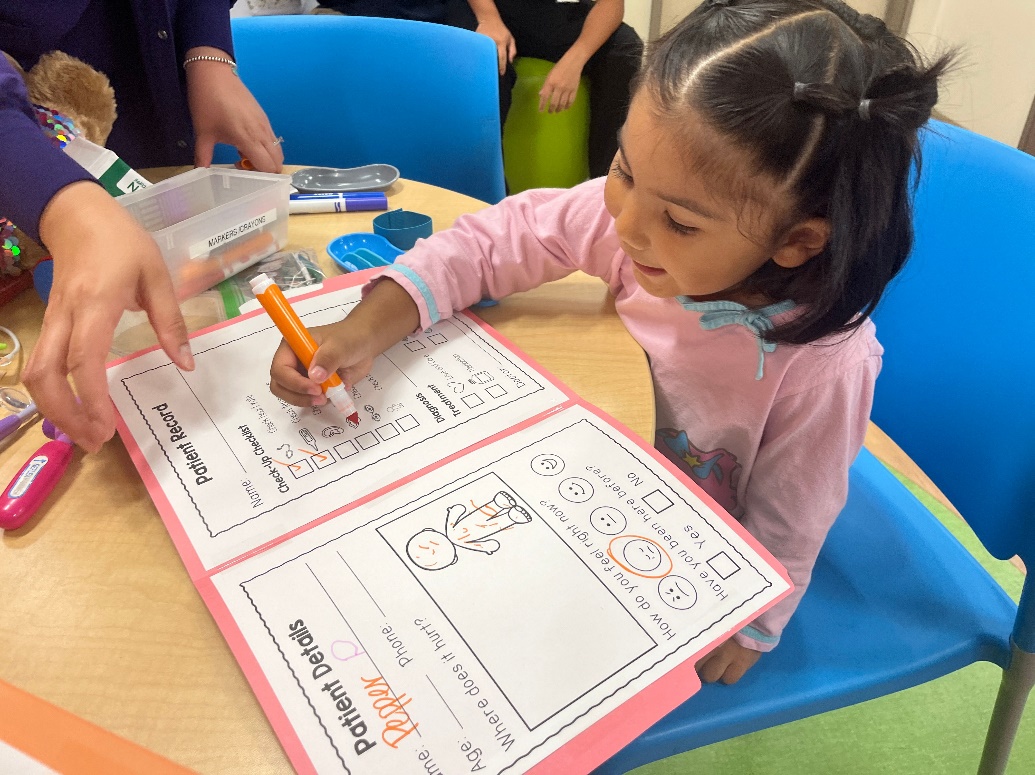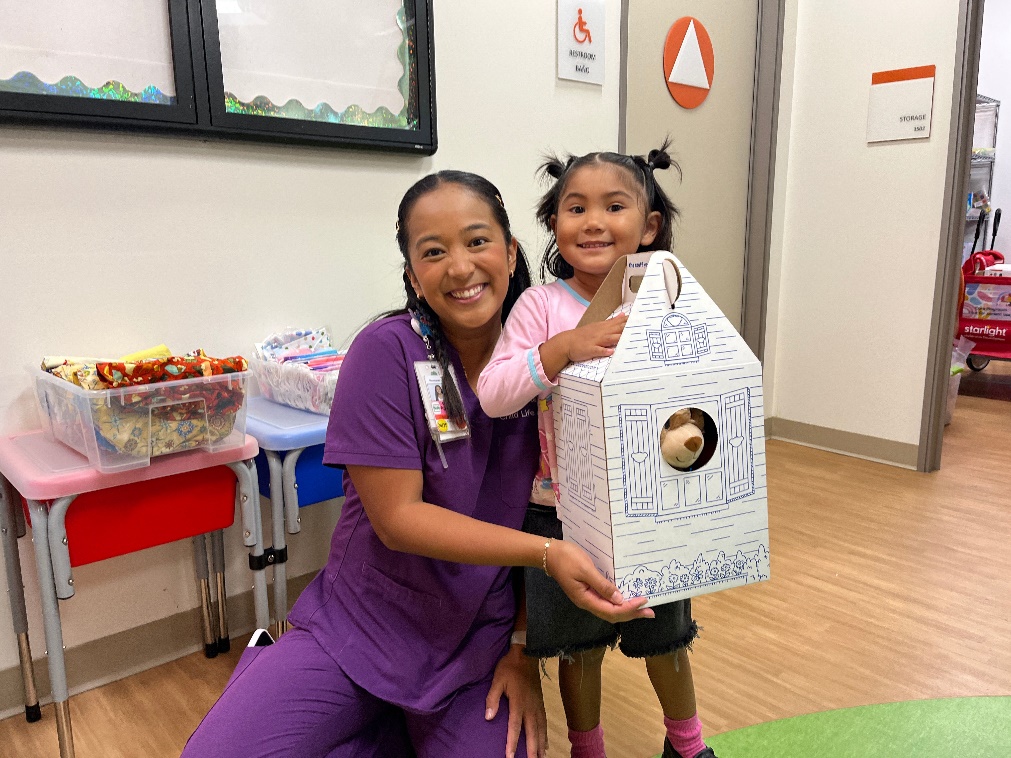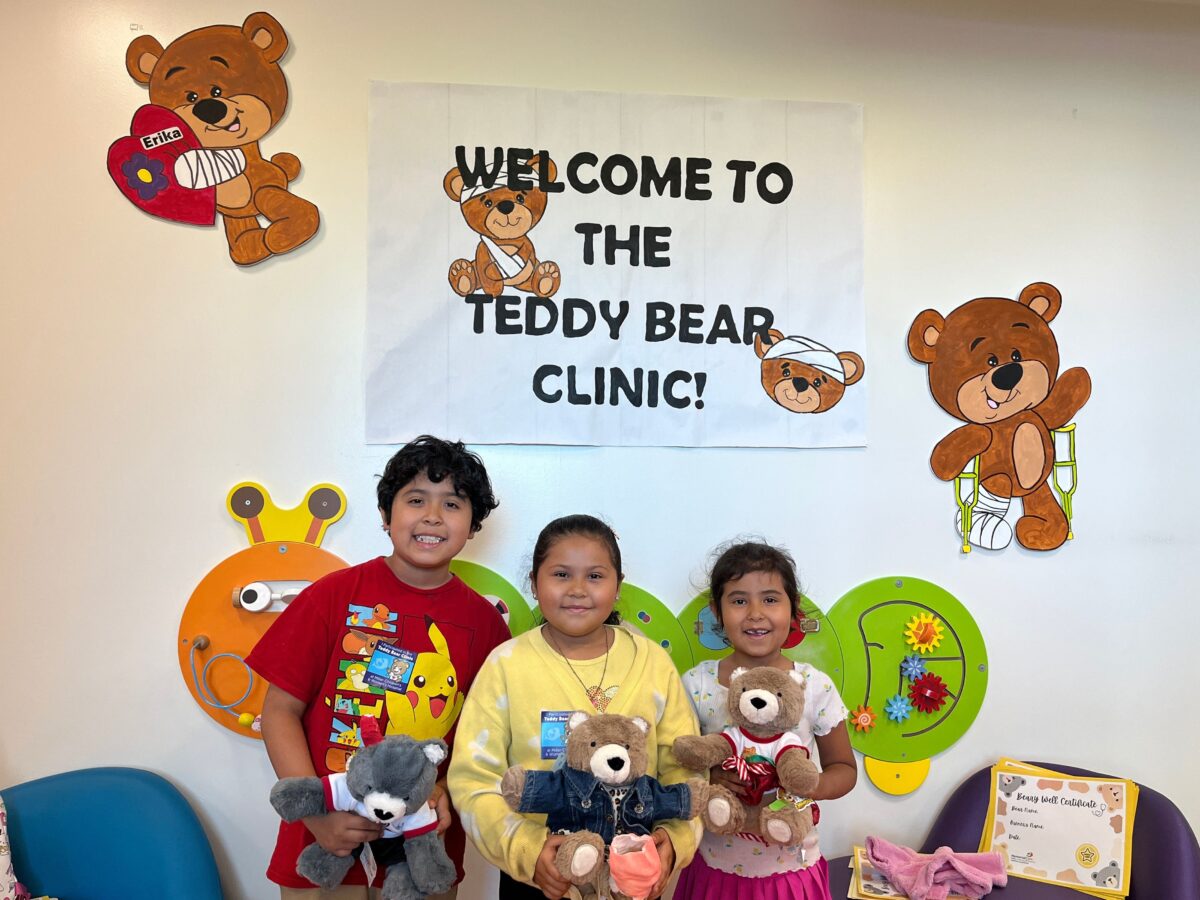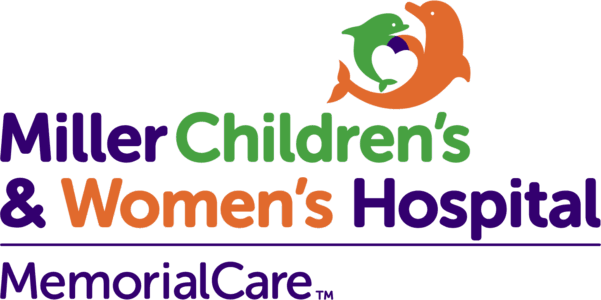In a heartwarming effort to ease the medical fears of young patients, children at Miller Children’s & Women’s Hospital recently stepped into the role of caregiver during a special Teddy Bear Clinic, hosted by the Cherese Mari Laulhere Child Life Program. This event transformed the clinical experience into a playful and educational adventure, helping young patients and their siblings reduce medical anxiety and feel more confident in health care settings.
Through imaginative role play and hands-on learning, patients and their families explored medical procedures in a safe and familiar way, with a teddy bear as their patient. The pop-up clinic began in a themed waiting room, where children checked in, selected a teddy bear, and dressed their new friend in colorful outfits from a miniature clothing rack. From there, the care began.
Children took the lead in performing health exams: measuring height and weight, checking vital signs, assessing vision and hearing, and documenting how their bear was feeling on a patient chart. To make the experience even more realistic, participants gave mock injections, applied casts to broken bones, and even prepped their bears for surgery using anesthesia tools. Kids could choose to be a doctor, nurse, or parent—offering them a chance to explore health care from a place of safety and control.
“Teddy Bear Clinics give children a sense of control and predictability in what can often be an unpredictable environment,” said Alyssa Agabon, child life specialist, Cherese Mari Laulhere Child Life Program. “It’s a powerful tool that helps normalize medical experiences and support emotional coping.We use a combination of play medical tools and real-life medical equipment to ensure patients become familiar and comfortable with their medical surroundings.”
The Teddy Bear Clinic was held in the Sibling Time Playroom, a dedicated space within the Cherese Mari Laulhere Children’s Village that supports the emotional and developmental needs of both patients and their siblings. This environment encourages exploration, creativity, and family bonding during medical care.
Parents were also involved, observing their child’s interactions to the mock procedures and gaining insight into how to support them through real-life medical experiences.
“When children play through what they’re going through, they’re able to process it in a healthier way,” said Karely Pompa, child life specialist, Cherese Mari Laulhere Child Life Program. “Seeing them smile, ask questions, and take ownership of the process is really what this is all about. It’s healing through play.”
Teddy Bear Clinics are just one of many child life-led interventions at Miller Children’s & Women’s Hospital that support the emotional well-being of young patients through age-appropriate education, therapeutic play, and family involvement—making the hospital experience more approachable and less intimidating for children of all ages.
